Diary from Gaza: 'If death doesn’t come from airstrikes, it will come from starvation'
After seven weeks of relentless bombardment that left 80 percent of Gaza's population – 1.8 million people – displaced, trapped and acutely hungry, a week-long humanitarian pause came into effect offering a temporary respite and allowing some aid into the small, decimated and fully-deprived enclave where food, water, medicine and any of life's necessities are dangerously low.
Hind, a native of Gaza, has made it her life's mission to share the stories of her people. In this account, she bears witness to the suffering befalling Gaza and how she and others are surviving. For weeks, Hind reported on life in Gaza. Below, she shares her story of displacement, the loss of her home, days without food, losing hope and finding it again.
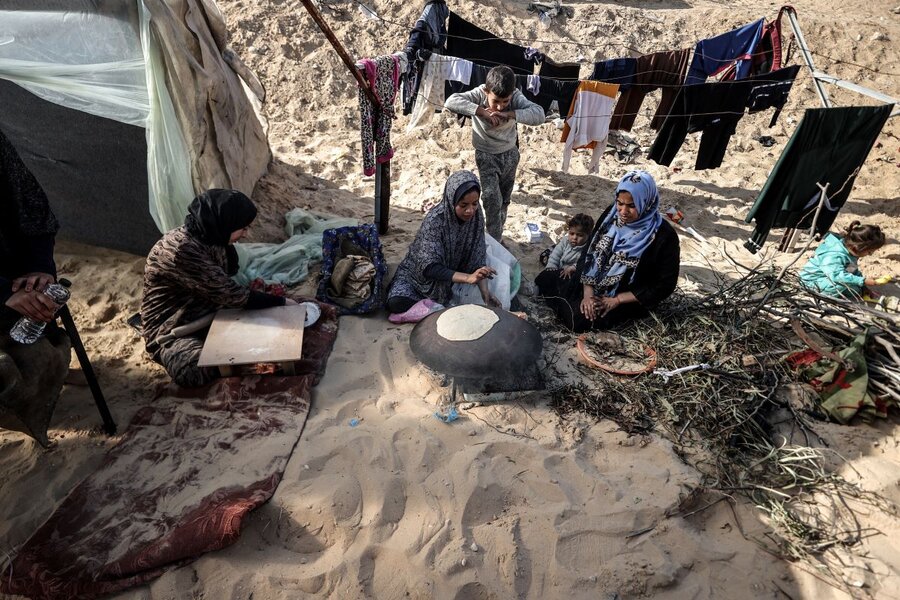
24 November
I woke up today to an unfamiliar silence. The absence of warplanes, drones and bombs. The uncertainty that it would last felt uneasy.
On the first day of the temporary pause, our footsteps led us to the Al Aqsa Martyrs hospital, where ambulances were transporting civilians wounded by gunshots on a road that was supposed to be safe. “We wanted to go back home,” a man with an injury in his right leg screamed.
People were shouting, doctors were in a rush trying to save those injured in their lower limbs from amputation. The hospital’s floors, once pristine, were now painted in the shades of spilled blood. As I looked around at the blood-soaked ground, I couldn't help but question, “Where is the ceasefire?”
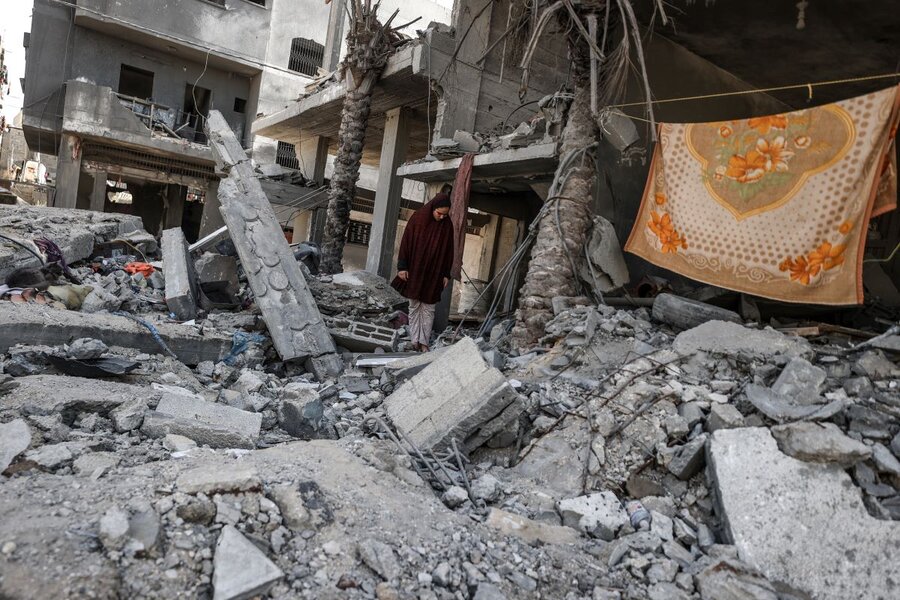
On that day at least 17 Palestinians were injured. Yet, as the day unfolded, an unsettling normalcy settled in – a silence that didn’t seem to care for the ruthless acts that left dozens of Palestinians dead or injured on the supposed respite's very first day.
In the midst of the heart-wrenching scenes, I decided to seek solace at the shore of Gaza, yearning for the calm sight of the sea and the soothing rhythm of the waves. The shore that I had been a stranger to for six weeks. Barefoot on the sand, I took a deep breath. All I hope for is an end to the violence.
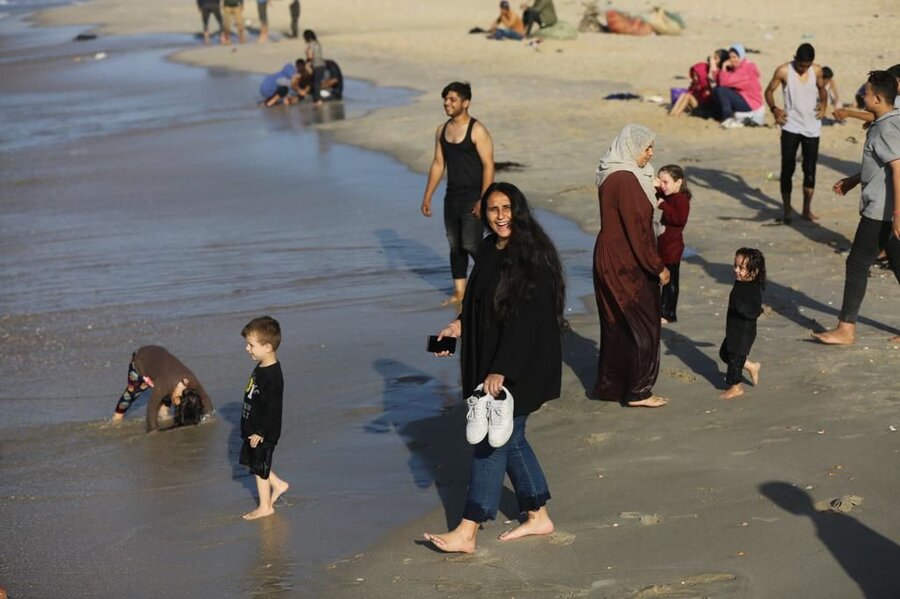
Children were swimming in the sea, laughing and playing – seemingly oblivious to the war. Gazans used to gather at the sea for picnics with friends and family, but today there were none. The absence of any food underscored the stark contrast between the ordinary joys of life and the grim reality of conflict.
25 November
The humanitarian pause agreement was meant to allow aid into the Gaza Strip. And yet, the supermarket shelves were empty. People were searching for salt, yeast and wheat flour to make bread. Everyone was desperately searching for ways to bring bread back into their lives, in supermarkets or on the streets – but no one can find.
A sign stapled on a supermarket entrance read: “WE DO NOT HAVE YEAST OR SALT”.
We went to Deir El Balah’s marketplace searching for food, but we could not find any. Tomatoes, cucumbers, onions, eggplant and oranges are all you can find. We even searched for winter clothes and blankets; we also did not find any.
If some supermarkets had anything at all on their shelves, it was soap and shampoo.
People are still going to shops, navigating aisles in the hope of finding anything they can return with to their children yearning for sweets. But how do you soothe a child crying for chocolate when you cannot even make them bread?
There is not enough food or aid reaching all of the people in the Gaza Strip.
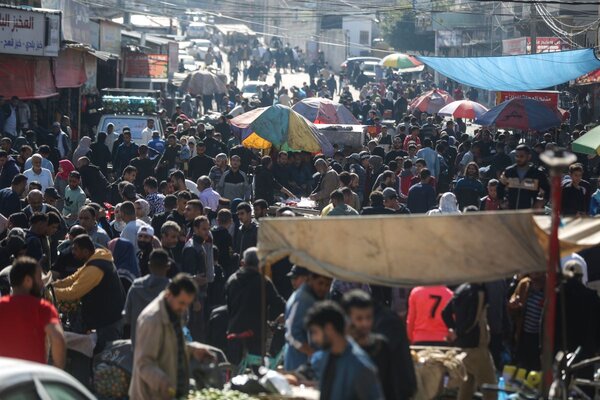
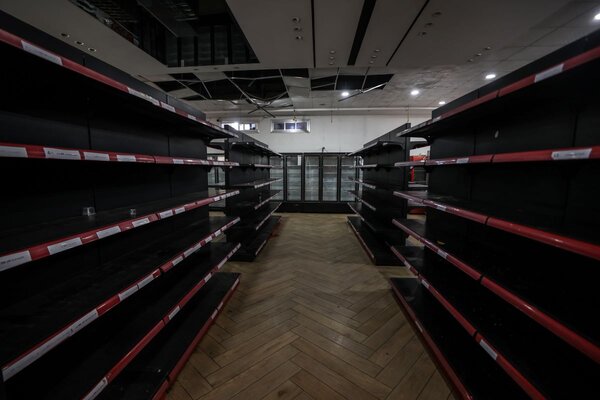
6:00 pm:
I found out my home was bombed from a video shared by someone on Instagram. I am still in denial. I won’t believe it until I see it with my own eyes. But I can’t.
Home is a couple of minutes away, but I cannot even go search for my belongings because people are restricted from going there. Gaza has been a besieged enclave since 2007 and Palestinians have had to deal with the lack of freedom in moving within the Strip or leaving it.
A temporary ceasefire without going back home was cruel. It is not only me. “Can we go back to our homes?”, is the only question everyone is asking. Not being able to go back home made me sad and depressed.
But not being able to mobilize from the north to the south of Gaza has been suffocating more than bombardment.
During the seven-day humanitarian pause, WFP and partners managed to scale-up assistance and reach people in areas that were cut off from aid for weeks. Hundreds of humanitarian aid trucks crossed into Gaza, but this was not enough in the face of the catastrophe unfolding.
Then the fighting resumed once again, and with it, more displacement, the risk of famine, and disease.
1 December
On 7am on Friday morning, we woke up to the sound of explosions and drones buzzing in the sky.
We knew it was coming, but no one was ready for all of that to start again after seven days of calmness without the buzzing noise of drones.
Israeli warplanes started launching multiple air raids across Gaza, targeting residential areas everywhere in Gaza. Explosions have not stopped since the resumption of the fighting. Artillery shelling, drones, warplanes, gunboats fire have not stopped.
In the first 24 hours reports say at least 200 Palestinians were killed. Thousands remain under the rubble where the civil defence teams can’t rescue all of these people.
However, the Israeli forces published a map with block numbers. Every area was given a block number, where they will start giving each block instructions to evacuate. But no one knows which block their home has been assigned and no one knows where to go. They run from one area being bombed to another.
People were frustrated and terrified, they were already displaced from their homes to areas in Gaza that they were told would be safe. But the reality is this: in Gaza no place is safe. People are fleeing from one death to another.
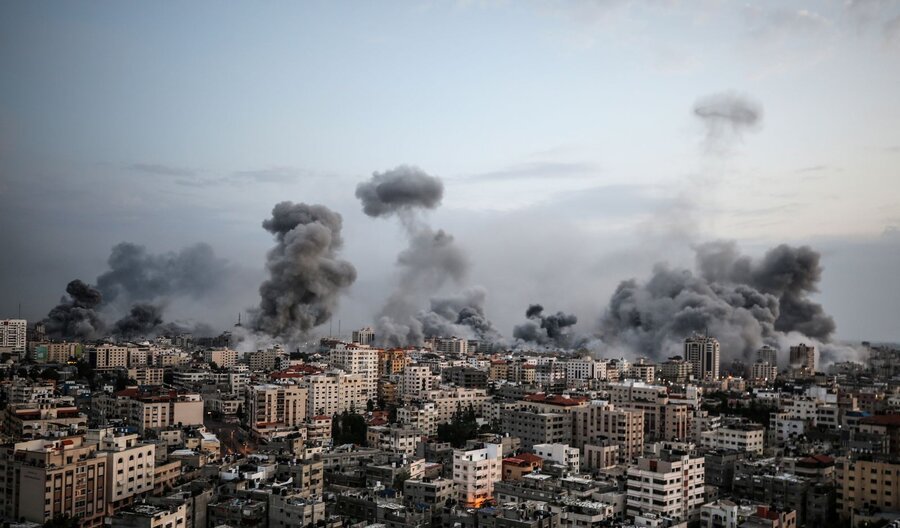
If death doesn’t come from airstrikes, it will come from starvation.
Today, we were sharing a bottle of juice that a friend managed to find. We were rationing it among ourselves when a massive explosion unexpectedly occurred close to where we are staying, we ran into each other fearing another explosion. This was the last bottle of juice we had in stock. I hadn’t managed to take a sip.
Today, I was intensely hungry. The only thing I could find was zaatar (thyme) and some bread that my friend’s mother made over firewood. To secure some wheat flour to bake bread, families can pay astronomical amounts of money. In one area inside Gaza, a bag of wheat flour – a rare find these days – was 400 NIS (US$ 107).
Food options are now a thing of the past. We no longer have a choice of what to eat, we eat what is available.
I yearned for something sweet. It has been so long without anything that I have forgotten the taste of pancakes with bananas.
4 December
We have officially run out of food. We went to the market to look for something to to eat and returned with cucumbers. We are drained, dehydrated, starving and cold.
People in Gaza city do not even have the freedom to search for food. Anyone who moves would be risking their lives. Neighbours have opened their doors to share whatever they have between them.
Now that the middle area of Gaza has been cut off, no aid has entered. People were asking to move but we have no way to leave and nowhere to go. The situation has been devastating more than ever.
We are starving. We are trapped. We are under non-stop explosions, airstrikes, artillery shelling, gunboat fire. Everything, everywhere, all at once.
We have no access to water - even dirty water - electricity, food, nothing.
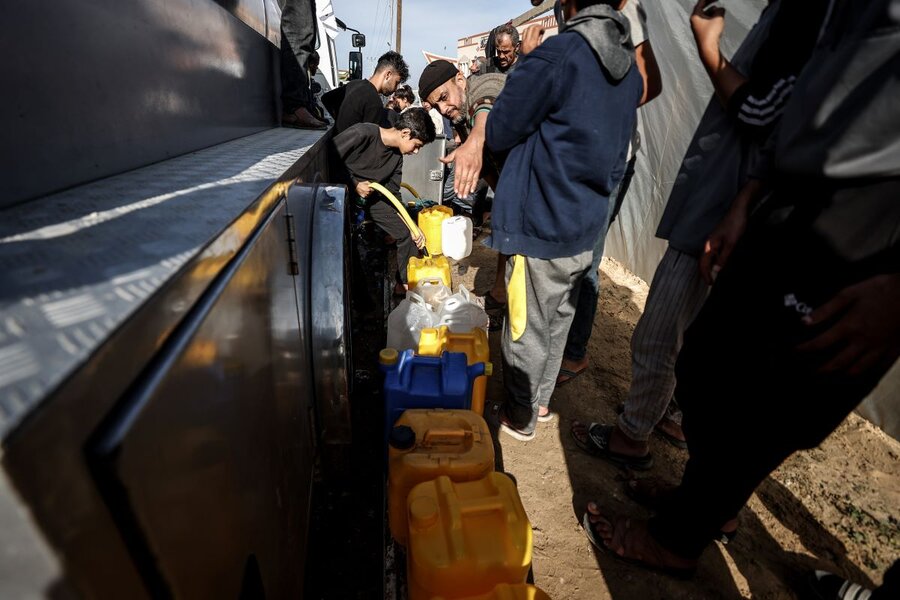
Yesterday the first meal we had was at 8 pm. I was hungry all day long but I didn’t tell anyone because everyone was hungry too.
Today, in the morning, we had some bread for breakfast. But I cannot help but think “When will this end? When will we go home?“- despite our homes being bombed. Nothing exists. Nothing feels the same. It’s raining now, I just heard an airstrike.
People are tense, fragile and cold. They don’t have winter clothes, when they evacuated, they did not have time to take any of their clothes, belongings, loved things.
Me too. When I went out of the house, I went as if I was going to work and coming back. I ended up never coming back again.
Everything is heart-breaking and overwhelming. All of these babies, and children and dead bodies.
I hate the sirens of the ambulance. I hate seeing it rain because I know everyone is shivering, it is very cold.
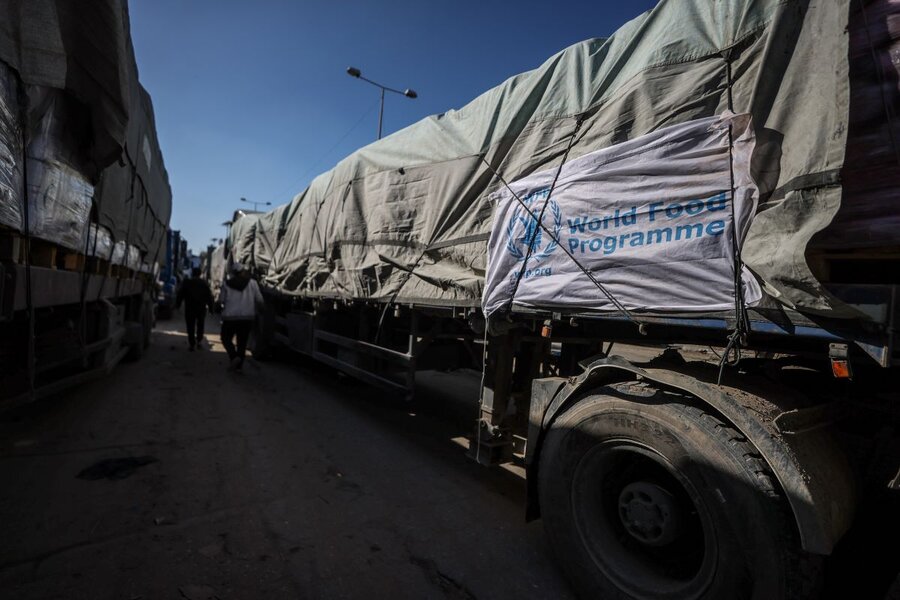
We haven't had electricity since the first couple of days. I forgot what electricity means.
I miss sleeping on my bed. I miss my mom. I miss my family. I didn’t get to see them for more than two hours in the past 60 days.
The violence is increasing day after day. More people are being killed, starved. We are witnessing all of this and we can’t do anything.
It’s heart-breaking to live through this with no end in sight. It is hard for me to accept that I cannot do anything but witness this carnage with everyone else in the Gaza Strip.
